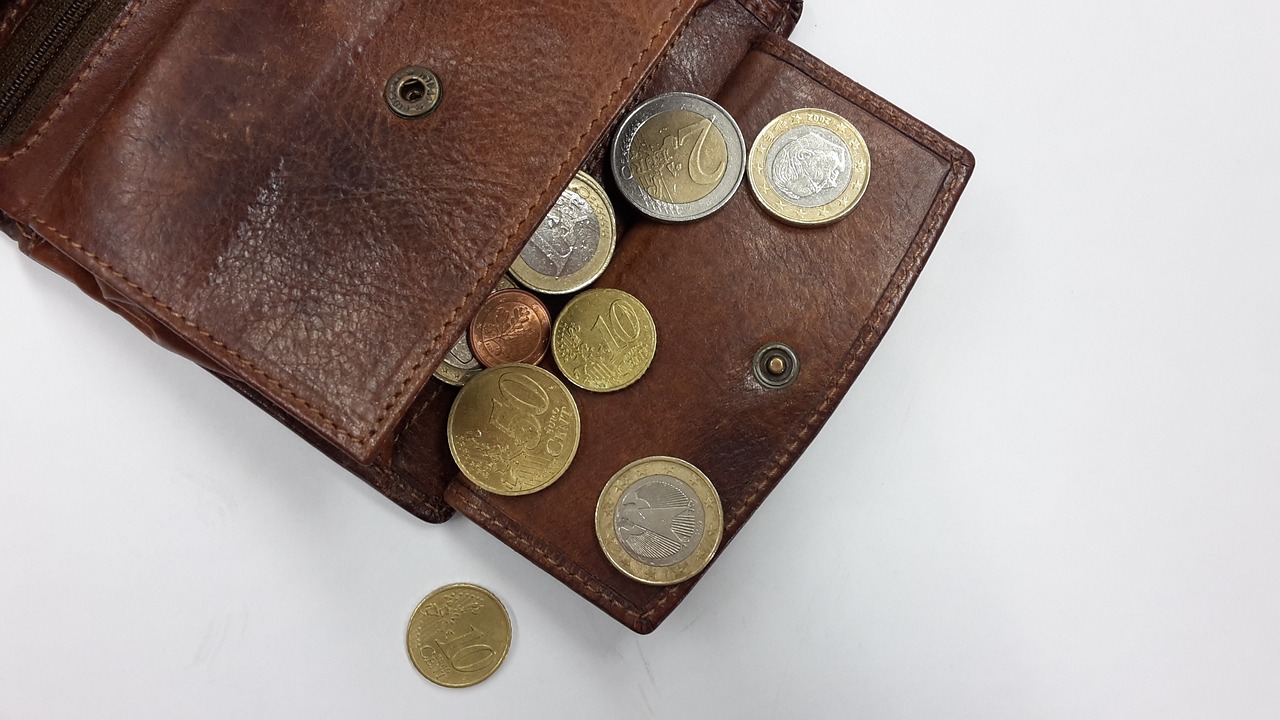A Comprehensive Guide Built on a Decade of Industry Experienc
Navigating the cryptocurrency world for the first time can feel a bit like stepping into a futuristic marketplace, exciting, but also overwhelming. As a new investor in 2025, one of the most important decisions you’ll make isn’t just what to buy, but where and how you’ll store it. In fact, for many who’ve weathered the last decade of crypto’s volatile rise, including hacks, bankruptcies, and regulatory shifts, the wallet is no longer just a tool. It’s your personal vault, your digital bank, and, in many ways, your identity in the blockchain universe.
This guide introduces you to five wallets I recommend to all new investors in 2025, not just for their technology, but for how they reflect the needs of beginners in today’s crypto landscape.
First, What Is a Crypto Wallet, Really?
Before diving into specific wallets, it’s important to understand what a crypto wallet actually is and what it isn’t. A common misconception is that wallets “store” cryptocurrency. Technically, your crypto lives on the blockchain. The wallet simply holds your private keys, cryptographic credentials that give you access to your funds. If someone else gets access to these keys, they can move your funds just like if someone knew your ATM PIN and had your debit card.
There are two broad types of wallets that beginners should become familiar with:
- Custodial wallets are typically provided by exchanges or third parties. They store your private keys on your behalf, much like a bank holds your money. While this makes things simple, it also means you’re not in complete control of your funds. If the provider is hacked, insolvent, or otherwise compromised (as we saw with FTX in 2022), your assets can be frozen or lost.
- Non-custodial wallets, on the other hand, give you full control of your private keys. These wallets are often called “self-custody” wallets, and they’re favored by those who prioritize independence, security, and decentralization. However, this also means you bear the full responsibility of managing backups and protecting your credentials.
Why Wallet Choice Is More Critical Than Ever in 2025
Over the last few years, several high-profile incidents have reinforced the importance of choosing the right wallet setup from the start. With phishing scams, fake apps, SIM-swap attacks, and rug pulls becoming more sophisticated, even seasoned investors have fallen prey to wallet-targeted exploits. Meanwhile, increasing global scrutiny from regulators has made it risky to depend solely on centralized exchanges.
For new investors, this means that starting with a reliable, beginner-friendly wallet that offers both usability and robust security is more than just a convenience, it’s a safeguard for your financial future.
The Top 5 Crypto Wallets for Beginners in 2025
After a decade of hands-on experience with nearly every major wallet on the market, from obscure open-source projects to multi-billion-dollar consumer apps, I’ve narrowed down the five wallets that strike the best balance between user-friendliness, security, and feature set for someone just starting out in today’s market.
1. Trust Wallet: The Best Mobile Wallet for Everyday Use
Trust Wallet, originally developed independently and later acquired by Binance, remains one of the most accessible mobile-first wallets for new users. Its non-custodial nature means users retain control of their private keys, but the onboarding process is remarkably smooth, even for those with no prior exposure to blockchain tech.
Its support for a wide array of blockchains including Ethereum, Bitcoin, Solana, Binance Smart Chain, and Polygon makes it ideal for users who want to explore different ecosystems without switching apps. The built-in DApp browser is a gateway to decentralized finance (DeFi), NFT platforms, and Web3 games, while integrated staking options allow users to earn passive income with minimal effort.
Trust Wallet has become my go-to recommendation for users who need a straightforward, secure wallet they can manage entirely from their phone. It’s reliable, backed by a strong developer community, and balances simplicity with power features like token swaps and staking all within one interface.
2. Coinbase Wallet: Perfect for Coinbase Exchange Users Making the Leap
Coinbase Wallet is distinct from Coinbase Exchange, it’s a non-custodial mobile and browser extension wallet that gives you full control of your keys. Designed with the same attention to user experience as the exchange itself, Coinbase Wallet is a great stepping stone for those who’ve started on Coinbase and want to transition into self-custody.
The wallet allows easy transfers from the Coinbase Exchange, and it supports not just Ethereum and ERC-20 tokens, but also Bitcoin, Solana, and NFTs across multiple chains. It offers optional cloud backups for your recovery phrase (encrypted), which can be comforting to users anxious about losing access. And like Trust Wallet, it includes a Web3 browser for seamless interaction with decentralized applications.
For new investors who have already dipped their toes into Coinbase but are looking to gain more autonomy without sacrificing familiarity, this wallet is an ideal next move.
3. MetaMask: A Must-Have for Ethereum and DeFi Enthusiasts
No list would be complete without MetaMask, arguably the most iconic wallet in the Ethereum ecosystem. MetaMask started as a browser extension but now also offers a polished mobile app. While it doesn’t support Bitcoin natively, its deep integration with Ethereum-based assets and applications makes it essential for anyone interested in DeFi protocols, Web3 projects, or Ethereum NFTs.
Its flexibility shines through in its ability to connect to custom networks like Arbitrum, Optimism, Binance Smart Chain, and Avalanche. It also supports hardware wallet integration, giving users the option to layer extra security onto their setup.
Over the years, I’ve used MetaMask to interact with everything from decentralized exchanges and DAOs to experimental DeFi yield farms. While its interface is slightly more complex than Trust Wallet or Coinbase Wallet, the functionality it unlocks makes the learning curve worthwhile. For users ready to go deeper into the blockchain space beyond basic buying and holding, MetaMask remains indispensable.
4. Ledger Nano S Plus / Nano X: Industry-Leading Hardware Wallets for Cold Storage
For those ready to move significant sums of crypto or simply want to minimize online attack vectors, hardware wallets like the Ledger Nano S Plus and Nano X remain the most secure option available. Ledger wallets store your private keys offline, ensuring that even if your computer or mobile phone is compromised, your assets remain untouched.
Ledger’s accompanying software, Ledger Live, allows you to send, receive, and stake a wide variety of assets, all while your keys never leave the device. The Nano X adds Bluetooth support, enabling mobile access without needing a cable.
Throughout my career, I’ve helped clients recover from phishing attacks, exchange shutdowns, and SIM-swaps, but never from the loss of a properly used hardware wallet. If you’re serious about long-term investing and want to sleep soundly at night, Ledger should be part of your toolkit. Think of it as a vault, not just a wallet.
5. Exodus: A Stylish, Beginner-Friendly Desktop Wallet with Great Portfolio Tools
Exodus is the wallet I often recommend to users who prefer managing their crypto on a computer rather than a mobile device. With an interface that looks more like a portfolio tracker than a command-line tool, Exodus combines usability with powerful features like staking, built-in swapping, and full Trezor hardware wallet integration.
It supports over 260 assets and includes portfolio visualization tools that make tracking gains and losses intuitive. The mobile version syncs with desktop, providing flexibility while maintaining the desktop-first experience.
What makes Exodus stand out is the quality of its design. For people who are visually-oriented or like seeing their assets neatly categorized and graphed, Exodus offers a level of polish that’s often missing in crypto apps. It doesn’t try to do everything, it just does the basics very, very well.
Additional Insights: Security Tips That Still Matter in 2025
Choosing a wallet is only the first step. Using it wisely is where the real protection lies. Here are a few principles I’ve consistently drilled into beginners over the years and they still hold true in 2025:
- Always back up your recovery phrase and store it offline, ideally in multiple secure locations. Cloud backups can be convenient, but they also pose risks if not encrypted properly.
- Beware of fake apps and phishing sites. Double-check URLs and always download wallets from official sources. Scammers are increasingly using lookalike domains and social engineering to drain wallets.
- Start small. When moving to a new wallet, test with a small transaction first before transferring large amounts.
- Use hardware wallets for significant holdings. Think of them as your long-term savings account, while mobile or browser wallets act like your checking account.
Don’t leave your wallet connected to DApps when not in use. Disconnect manually to avoid being vulnerable to exploits.
Your Wallet, Your Responsibility
In an ecosystem that empowers financial independence, wallets serve as your passport to the blockchain economy. They’re more than just tools, they’re your digital sovereignty.
The five wallets covered here; Trust Wallet, Coinbase Wallet, MetaMask, Ledger, and Exodus, each offer unique strengths tailored to different kinds of beginner investors. Whether you’re buying your first $50 of Bitcoin or planning to build a long-term portfolio across multiple chains, one of these wallets will fit your goals.
Crypto’s core ethos is self-ownership and that starts with your wallet. Get this choice right, and you’re not just storing coins, you’re laying the foundation for your financial future in Web3.





